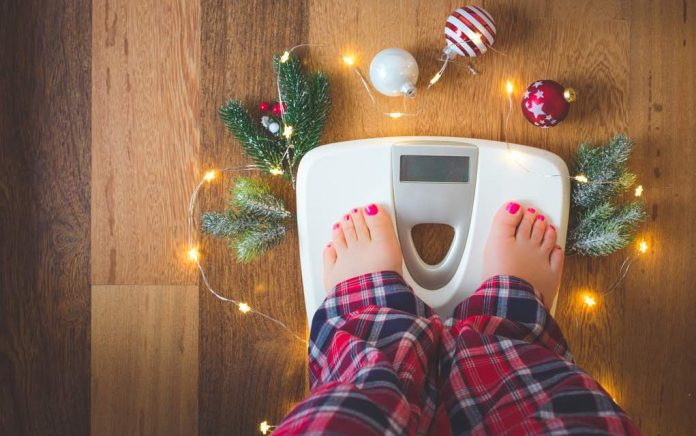
'Tis the season of decadent foods, overeating, and weight gain. Many folks will put on anywhere from three to seven pounds in December alone. Just why is it that the holidays always seem to interfere with our best eating intentions?
Turkey, stuffing, mashed potatoes, glazed carrots, and of course, dessert can add up to 3,000 calories in a single meal. It takes an extra 3,500 calories to gain a pound of fat. One meal won't necessarily tip the scales, but Christmas isn't just one day or one meal. It's the combination of chocolate on your colleagues' desks, fast food while shopping for gifts, parties, alcohol, family dinners, cookies, and baking . . . and it all adds up.
"The holidays can be a trying time for those watching their weight," says Claire Fountain, a New York-based vegan baker and personal chef. "It is obvious the powerful role good food plays with holidays in terms of family, friends, community, and the spirit of the season. Sadly, like most 'comfort' foods, holiday times include heavier dishes, more sauces, and treats galore."
Rather than allowing food to ruin the festivities, these simple tips can help you maintain control of your diet and health:
Be Realistic
The holidays are not the time to lose weight. Instead, aim to maintain. Your weight reduction program can wait until January, but shedding excess pounds will be easier if you haven't gained any weight over the holidays.
Start Each Day Right
Eat breakfast every day and ensure it provides at least 20 grams of protein. Protein encourages appetite control throughout the day. Good protein sources include eggs, protein-rich cereals, protein powders, nut butter, and avocado.
Eat Before Parties
Arriving hungry to a party or dinner can sabotage even the strongest willpower. Fountain recommends noshing on lower-calorie foods like oatmeal, fruits, low-fat yogurt, and broth-based soups throughout the day, and eating a small, fiber-rich snack before heading to the big event.
Be Buffet Smart
Selectively taste-test your way through the buffet taking only one-bite portions of the foods you really want to eat. Move your socializing away from the buffet to eliminate subconscious nibbling.
Fountain also recommends avoiding nuts and cheeses. "They are delicious but high in calories and are easy to over-eat. Stick to crudités with hummus, shrimp cocktail, or edamame."
Hors d'oeuvres, those harmless-looking bite-sized snacks that perpetually adorn buffet tables, likely have more calories and fat than you bargained for, including trans fats. When purchasing Hors d'oeuvres, read labels carefully, and avoid products listing the term "partially hydrogenated."
Chat it Up at Dinner Parties
At sit-down dinner parties, make your first helping a small one. Talk more during dinner, eat slowly, and try to hold off on seconds for at least 20 minutes. It takes that long for the brain to recognize that you're no longer hungry.
Don't Drink Your Calories
Whether it's a shot, a glass of wine or a pitcher of beer, those empty calories from alcohol will add up quickly. A 12 oz. serving of beer provides 150 calories (and at 110 calories, lite beer hardly seems worth it), while a 5 oz. glass of wine has 90 calories. At just under 100 calories, a 1½ oz. shot of liquor sounds like the calorie-conscious option, but add in another 75 calories for the 6 oz. carbonated beverage and you may as well have had that beer.
Even more troublesome is that alcohol stimulates the appetite and may lead you to binge on foods you might not have touched sober. If you choose to imbibe, enjoy alcohol with a protein snack (one of many reasons why wine is paired with cheese), and mix your liquor with soda instead of tonic or have a wine-spritzer rather than a full glass of wine.
Paying attention to how you eat, what you eat, and when you eat will go a long way to keeping those pounds from piling on this holiday season.
More on The Holiday Season from Naturally Savvy:
Natural Fragrances to Scent Your Home this Holiday Season
Whole Braised Holiday Cauliflower










